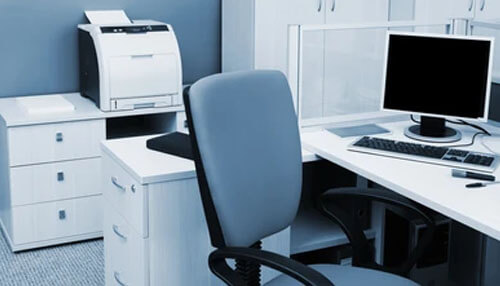Starting a company is a hectic ordeal that requires your attention on multiple fronts. You’ll usually be pressed financially, and you’ll have to figure out a way to make things work with what you have. Buying used equipment is one of the best approaches here, but it’s something that has to be done with caution and knowledge. Some types of items definitely deserve a new purchase, but that’s far from the case with everything. Let’s take a look at some viable options for saving money.
Office Equipment
Many items used in the office tend to last a long time and don’t require too much maintenance. Computers, monitors, printers, desks – you name it. Some of these can last for years without any upgrades, especially if you’re lucky to get your hands on some higher-end models. And while you might need at least one specialist who knows their way around tech to keep things in check, you should be able to handle most of the required maintenance yourself.
Company Vehicles
Vehicles are often an expensive investment, especially if you need more specialized ones. That’s another area where investing in used equipment can be a very viable approach. Look up some Hampshire van sales and see if anything catches your eye. Your initial fleet doesn’t necessarily have to match perfectly. It’s okay to get several different models for a start and then work your way up towards a more properly structured fleet. As long as the vehicles you’re buying are in a good condition and you’re able to take on the additional maintenance work that they’ll require, this is definitely an area worth exploring.
Tools
Many professional tools can last a long time, and if your business is one that requires equipment of this type, it’s worth checking out the second-hand market. Some renowned manufacturers even have models with a lifetime warranty, which can make these purchases a very viable investment. Some companies need to invest a lot of money in their tools in the beginning, and this can be a great way to optimise your funding and ensure that you’re investing only where you actually need to. Don’t go overboard though – just because this corner of the market offers some good deals, doesn’t mean that you should buy them all. Take some time to evaluate what your business will actually need and focus on those items in the beginning while your funds are still limited.
These are some good starting points, but the list is far from exhaustive. You can probably find various other attractive opportunities for getting a better value on the equipment you’re buying and doing this properly is one of the key steps to establishing your business successfully and entering the market on the right track. If you spend too much on new equipment, this can cost you later, and in many cases, it might turn out that those investments were not worthwhile in the slightest when you compare them to the options available on the used market.



